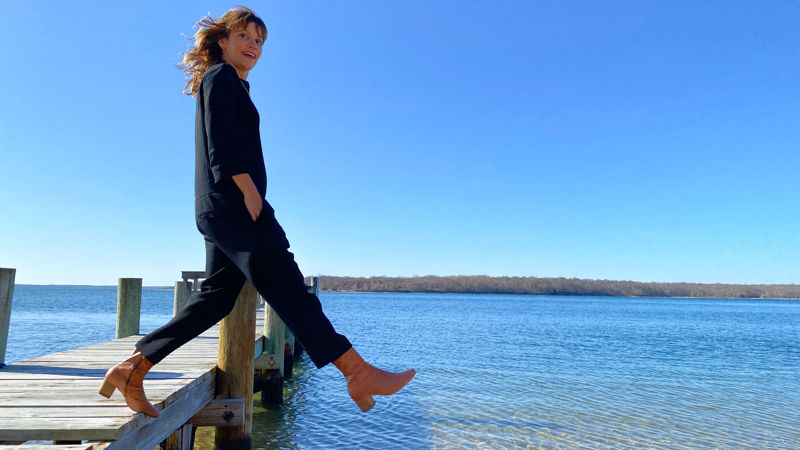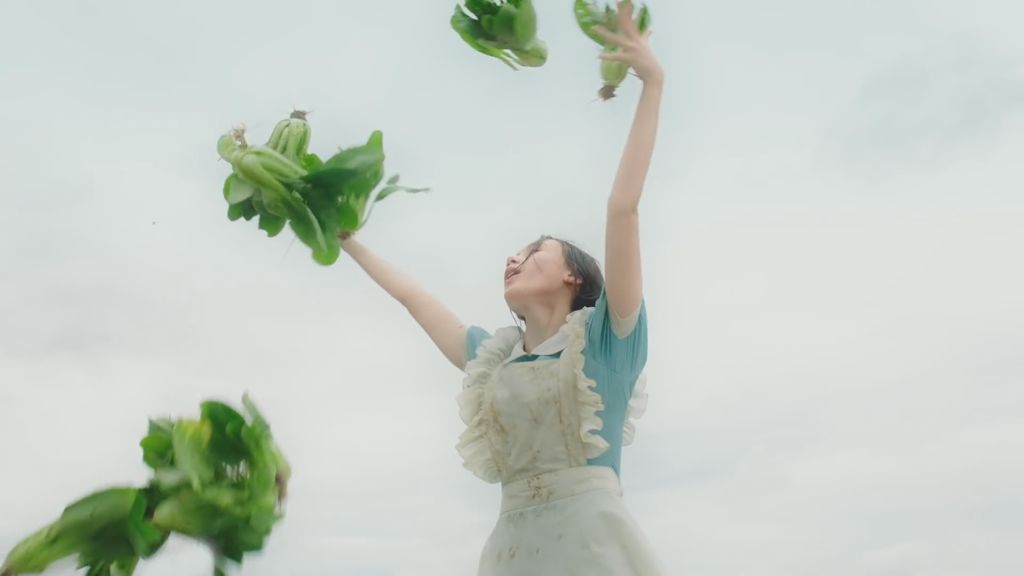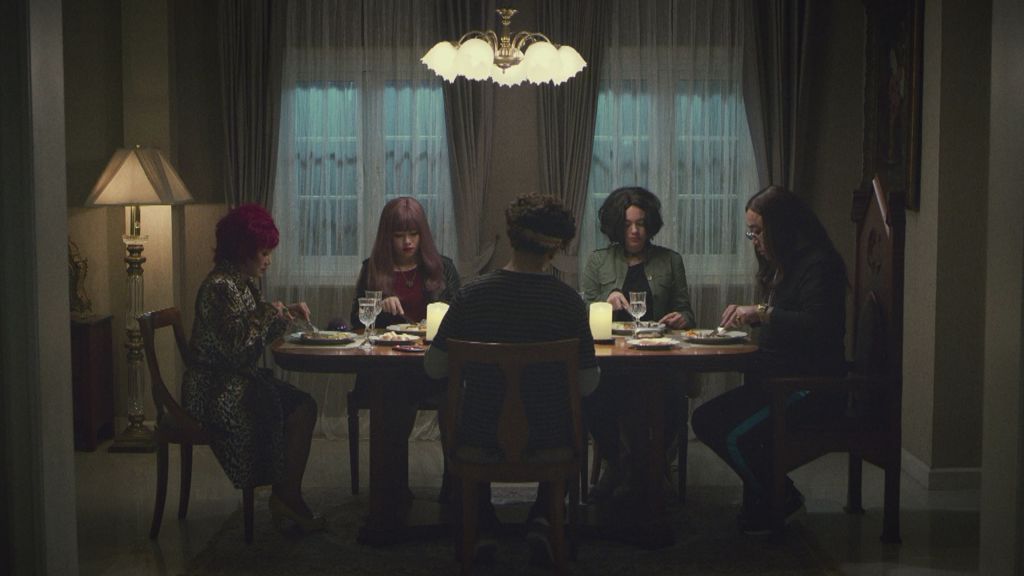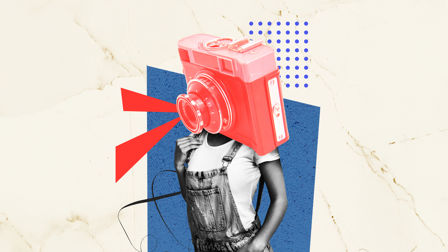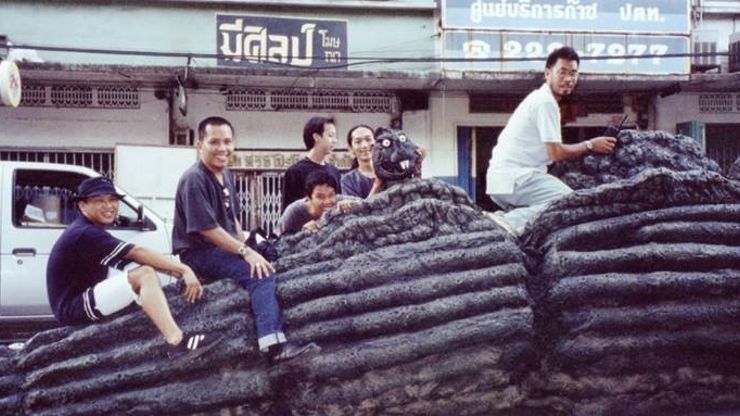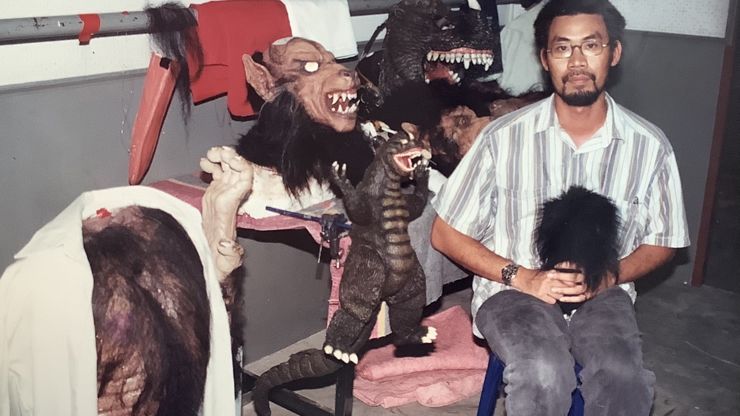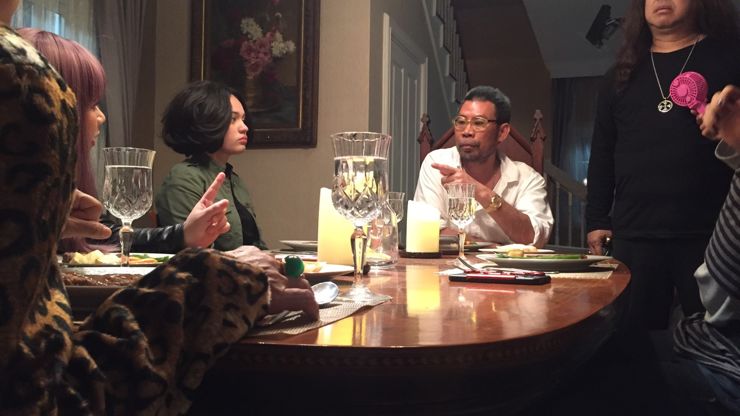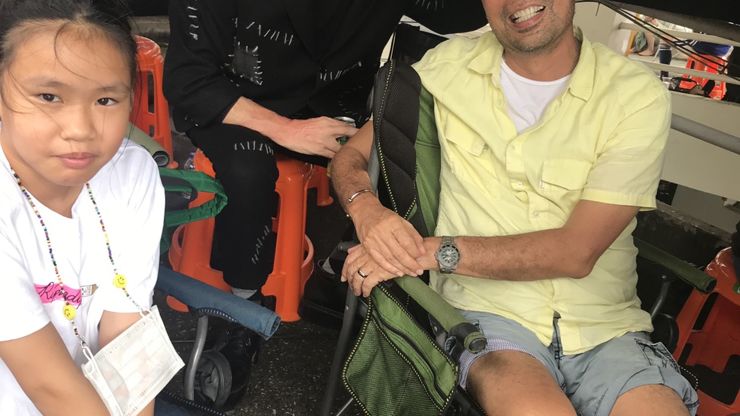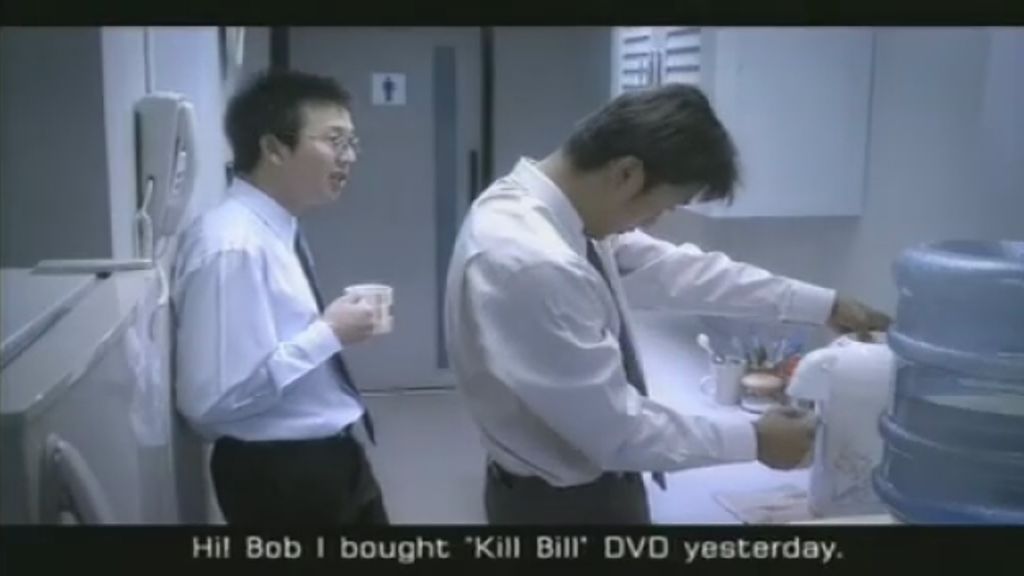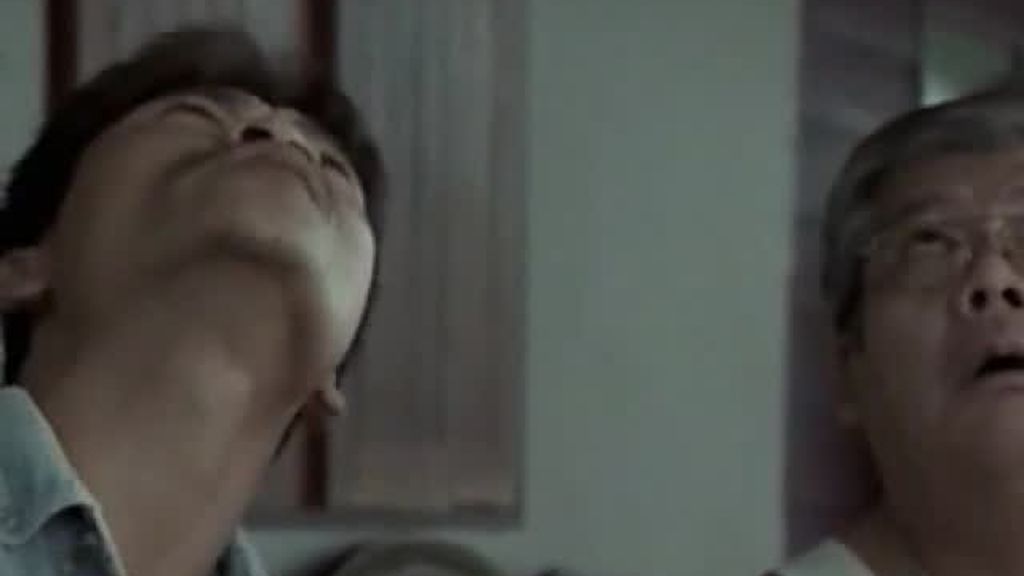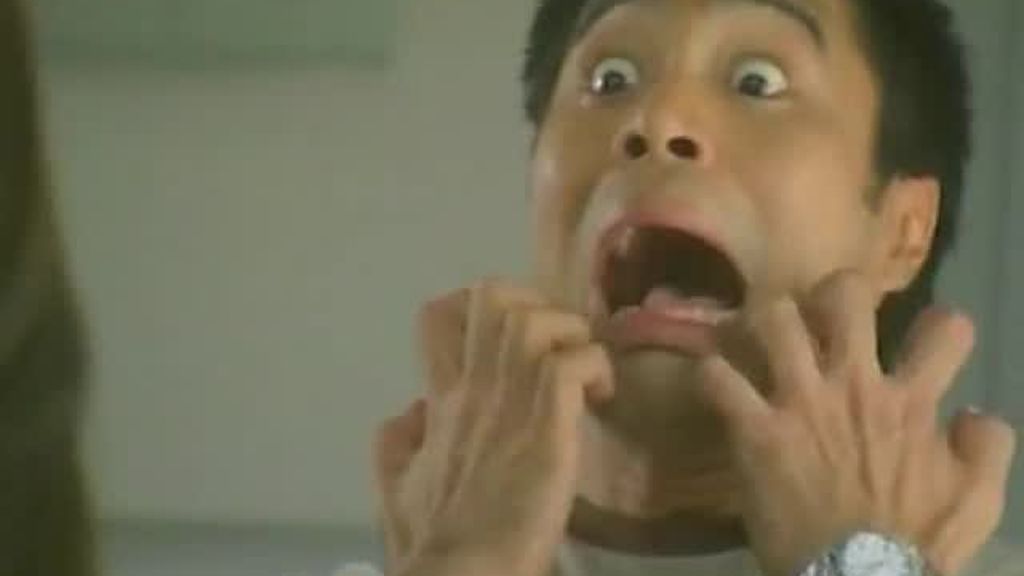Suthon Petchsuwan: Thai-tan of comedy
The creative-turned-director who's been splitting sides with his unique form of surrealism for the past few years chats to shots about creativity, career-changes and the power of the the gag.
Ad creatives becoming commercial directors isn't exactly a rarity, but few have done it to such aplomb, and international acclaim, as Suthon Petchsuwan.
Likewise, a handful of directors from Asia, in particular Thailand, Korea and Japan, have made waves with Western audiences, but few have had the continued success that Petchsuwan's work enjoys.
The key, it seems, is his phenomenal ability to create surreal comedy out of ouvert melodrama, generating laughs that owe as much to confusion as they do cleverness. The skill has seen him create work for giant agencies like TBWA Chiat/Day, Goodby Silverstein & Partners, Wieden & Kennedy, as well as his recent run of LOLable treats for the Thai Health Promotion Foundation.
We caught up with Petchsuwan to chat about what it is that makes his gags grow in popularity, and how he's kept the surreal life up for so long.
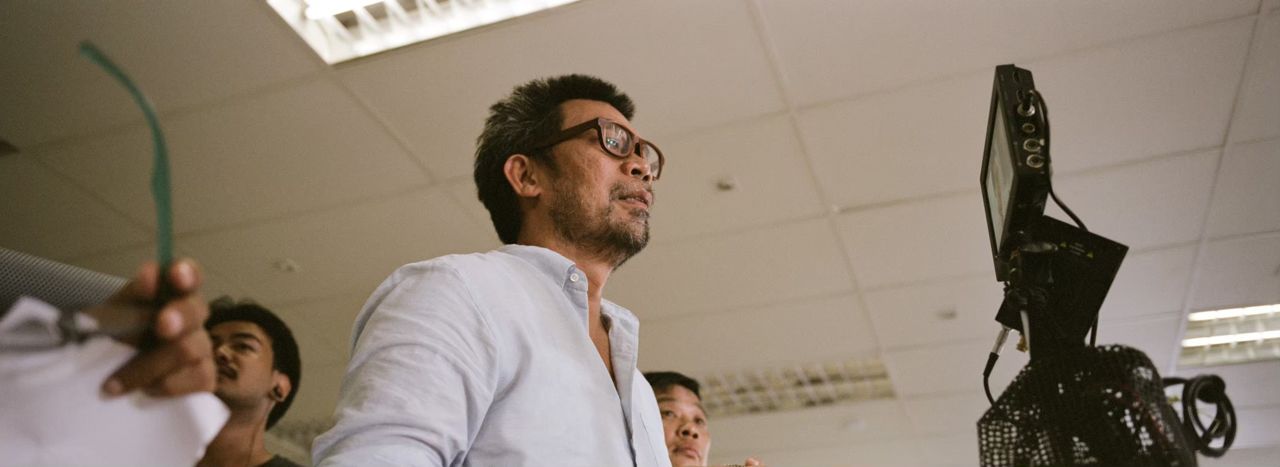
How did you get started in advertising? What were your major influences coming into it?
I studied art, design and psychology. One day, when I was about to graduated, there was a poster attached to the wall at my faculty advertising the Creative B.A.D. Workshop – recruiting students to study creative advertising.
I liked the word BAD very much, but later learned that B.A.D. stands for Bangkok Art Directors' Association. Somehow, I applied and was chosen to enter. That moment changed the direction of my life, and I became an advertiser.
[My career] hasn’t felt like work, more like being in a playground.
For the whole time I have worked in advertising - almost 10 years – it hasn’t felt like work, more like being in a playground.
Did your background in agency work inform your journey as a director? What advantages would you say it gave you?
Having worked at an agency beforehand, I knew quite a lot about advertising.
I knew how hungry the creatives are for award-winning work. Knew how much the clients wanted their products to be successful when on sale.
I just directed the films straight to that point.
Above: Some of Petchsuwan's work for the Thai Health Promotion Foundation.
What was the first moment you became a director? What led to that moment?
Whilst filming a commercial, on which I was a creative, I walked to the camera and told the director “why not that...” “why not this...” why, why, why.
The director turned to me and said “Why don't you direct it yourself?”
So I thought, “He's right, why don’t I!?”
Your spots tend to be comedic and lean heavily into the surreal. What draws you to that kind of comedy?
Probably, it looks surreal because it is rarely seen in real life.
I think when something happens in the wrong place or at the wrong time, it's funny.;
A director turned to me and said “Why don't you direct yourself?”. So I thought, “Why don’t I!?"
But if you don’t get it, the ‘funny’ is gone.
Above: Behind the scenes japes.
What are your tips for successful comedic direction? What do you try to avoid?
There’s a simple tip for making funny advertisements: after someone tells a joke, you have to take a cruise through time to see if the listeners in the future laugh?
If not, you have to ride back in time to the present and find another joke.
You might have to ride many laps.
Thai jokes are simple. No Strategy. No need to wait for the end to laugh. You don't have to be smart for them to be funny.
Some jokes may not be funny to others; that’s the thing I avoid.
Would you say that Thai comedy is of a specific type? Do you feel it travels?
Thai jokes are simple. No Strategy. No need to wait for the end to laugh. You don't have to be smart for them to be funny.
We don’t make jokes to comment on the social class. There is no reason behind them.
Thai jokes are mostly surreal.
Thai Boxing is often called Kick Boxing; in the same way, Thai Jokes may as well be called Surreal Jokes.
Above: Some of Petchsuwan's earliest directorial work.
Your relationship with the Thai Health Promotion Foundation has spawned some classics. What is it about that brand that particularly appeals? On paper, it wouldn't seem to be the funniest of topics.
When I became a director who started to have grey hair, products for the world of teenagers were rarely entrusted to me. But I discovered that working on a topic that was not ‘fun’ was actually really challenging; the challenge was to make it interesting.
When I became a director who started to have grey hair, products for the world of teenagers were rarely entrusted to me.
In the end, it turned out that I had directed a teenage film for the organization after all.
Would you consider working outside of the advertising world? Do you have a comedy feature film in you?
I used to fall asleep and dream.
Then I woke up and couldn’t remember what am I was doing in the dream, but I knew it was extremely funny.
Does that answer your question?
What’s up next for you in 2021?
To be vaccinated and travel!
)

